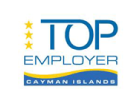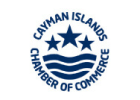The Four-Day Work Week: Myth or Reality?
by Jakub Jahnl on October 7, 2021
Countries, industries, and companies across the globe are trialling and adopting a 4-day workweek. Positive reports are coming out of New Zealand, Iceland, Japan, and Scotland. But what does it mean for the company’s productivity, managers, and employees? And ultimately, should your organization consider adopting a four-day work week?
At Perpetual Guardian in New Zealand, initial reactions to the trial were ‘How am I ever going to do my work in four days rather than five.’
Their trial indicated that not only could employees do their work in four days, but they could do it better!
How Did They Make a Four-Day Work Week Work?
With a powerful reward of an extra day off, managers trusted their employees to buy into the trial genuinely. They learnt that while they all have sufficient energy to work a five-day week, it may not be optimal to get work done. Employees talked about the benefit of having an extra day off. It allowed them to recover and rejuvenate and engage in new activities, leaving employees to return to work with higher energy levels.
As a work permit holder and a permanent resident’s spouse or civil partner, you can apply for your RERC once they have received their PR approval. It is a simple process to apply for your own RERC. Once your RERC approval is issued, you can now work for any employer under the job title listed on your last work permit.
And if they could, would it reflect poorly on them from before the trial?
On quoting Parkinson’s Law concerning the above statement. Cyril Northcote Parkinson, a British historian, wrote a lighthearted essay based on his experience in the British civil service. Parkinson’s first sentence became his eponymous Law:
“Work expands so as to fill the time available for its completion.”
- If something must be done in a year, it’ll be done in a year.
- If something must be done next week, it’ll be done next week.
- If something must be done tomorrow, it’ll be done tomorrow.
As a deadline approaches, we plan on how much time we have, making choices and trade-offs to ensure the task is complete by the deadline. All projects take time. You certainly can’t build a skyscraper in a day. The more complex the project, the more time it typically takes.
Founder of IKEA, Ingvar Kamprad, once said,
‘If you split your day into ten-minute increments, and you try to waste as few of those ten-minute increments as possible, you’ll be amazed at what you can get done.”
Before and after the Perpetual Guardian trial, managers assessed their teams’ performances. The reduction to four days allowed the teams to become more creative on completing their work in the shorter allocated 4 x 8 hour working days. They found solutions to doing the work in 4 days; they engaged in more positive behaviours towards each other. They became more engaged and focused on customer service. All these behaviours boosted the organization’s performance.
What a Difference a Day Can Make!
- Personal Health
- Family Time
- Leisure Time
- Personal Hobbies
- Personal Admin
- Community Time
Japan, synonymous with long working hours, high-stress levels, and employees suffering from burnout, should note Microsoft Japan, who tested the four-day workweek over one month. Over August 2019, they experimented with a new project called ‘Work-Life Choice Challenge’, allowing its entire 2300 person workforce five Fridays off in a row without affecting pay.
The outcome: Employees were not only happier but significantly more productive.
Are There Disadvantages to a Four-Day Work Week?
In reality, there are disadvantages to a four-day workweek. During Perpetual Guardian’s trial, they identified several weaknesses.
- An increased risk of injury or error may occur in some positions, proving that longer hours may not suit specific situations.
- It could cause understaffing at peak times, difficulties scheduling meetings, and a more extended schedule could drive lower productivity at the end of the day.
- If the employee is customer-facing, there could be potential issues with slower response times for the employer.
Perpetual Guardian simply cut one full day of work, leaving four 8-hour days for the working week without reducing pay or benefits. Other companies kept the same 40-hour week, compressing it into four 10-hour days. One of these options could be a disadvantage depending on the unique circumstances of your organization, so it’s important to put thought into what will work best for the needs of your staff and organization.
Do the Overall Benefits Outweigh the Disadvantages?
A survey conducted throughout the trial asked employees how they felt about their new working hours, and in most cases, the overall benefits trumped the disadvantages.
It was reported that there were lower job stresses and burnout, with work-life balance levels achieving record highs. Employees reported being more committed to the company, therefore, less likely to look elsewhere for a different job.
Read more on the Perpetual Guardian trial here.
What Should Organizations Consider Before Implementing Such a Policy?
The 4-day workweek is still a ‘myth’ in the Cayman Islands and the other jurisdictions that our recruitment advisors represent. Companies would have to cut through a lot of red tape before implementing this kind of working environment. From an HR consulting perspective, companies would require advice (and even changes in legislation) on how to handle their pay & overtime structure, labour law, contracts and, in some cases, work permit regulations.
Other work-life balance considerations would be:
- Some employees may prefer to receive more free time, no matter the pay or they may be prepared to work longer hours for the four days to keep all their benefits.
- Employees with young families or who care for family members may prefer to work five days a week but with shorter hours to facilitate their family commitments.
With the above two considerations in mind, organizations may need to consider a hybrid solution based on their employee’s needs and requests.
Will it work for your organization?
The onset of the COVID-19 pandemic has created new, flexible schedules that are almost certainly here to stay in some form or another, whether a 4-day week or other flexible options. Changes like these require a visionary owner/manager, an understanding of the needs of their workforce and a strong HR team to make a decision that meets the best interest of the organization and its people.
If you are considering options for your organization and need help assessing what may best fit your organisation’s needs and your people, our HR Consulting team is here to help. From engagement surveys to policy writing and implementation, we can support you to help your business, and your people grow.
For more information on our Human Resource Consulting services, email Jakub at Jakub.Jahnl@cml.ky today.
SHARE THIS ARTICLE
Recent Articles







